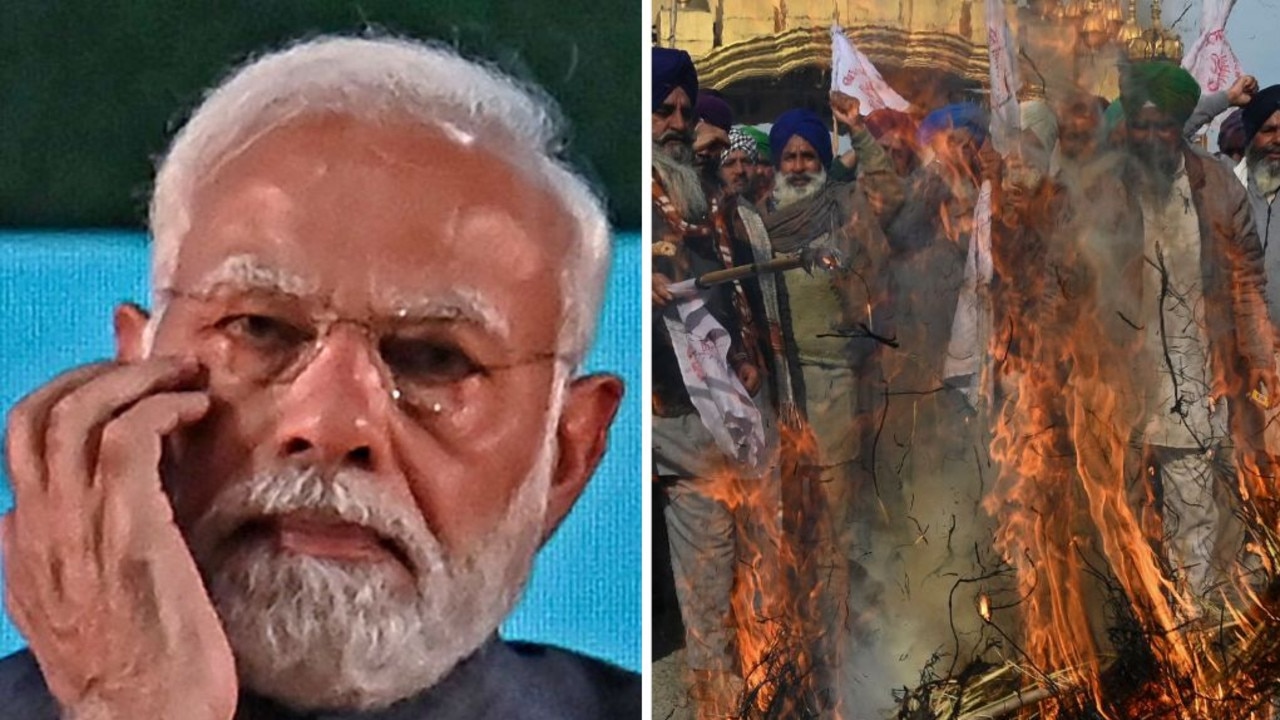Controversy over an explosive new documentary is brewing in India, with the British Broadcasting Corporation coming under fire from government officials.
This week, tax officials from India raided the broadcaster’s offices in relation to a revealing two-part series about Indian Prime Minister Narendra Modi, sparking backlash from free press activists who have long criticised the leader’s rule.
The documentary — titled India: the Modi Question — examines the relationship between the PM and the country’s Muslim minority.
The timing of the raid, which occurred just weeks after the documentary was aired — and on the cusp of a February byelection — has raised concerns and accusations of intimidation.
The documentary first aired in the UK in January and has been the subject of heavy controversy among Modi’s supporters in India.
Since Modi became Prime Minister in 2014, his Bharatiya Janata party (BJP) government has been accused of pursuing Hindu-centric policies that discriminate against India’s 200 million Muslims as part of a right-wing religious nationalist agenda. Detractors claim his policies have moved India away from its secular foundations.
The first episode of the documentary examines allegations from 2002, when Modi was chief minister of the state of Gujarat, and 60 Hindu pilgrims were killed when their train carriage was set alight.
The Muslim community was blamed, and it set off a wave of bloody retaliatory violence, with Hindu mobs targeting the homes of Muslims across the state. Over 1000 people, most of them Muslims, were killed in the riots.
The allegations of Modi’s role in the communal violence have followed him for years, leading to a US visa ban. However, he was cleared of complicity in the violence by a Special Investigation Team appointed by the supreme court of India in 2012, a verdict upheld in 2022, and his visa ban was lifted after he was elected as Prime Minister in 2014.
The documentary includes a previously unseen and confidential UK government report produced after the riots that found Modi responsible for the violence and described the riots as having the “hallmarks of ethnic cleansing”.
The documentary also features an interview with Jack Straw, UK foreign secretary at the time, who claims that Modi had played a proactive part in pulling back police and in tacitly encouraging the Hindu extremists.
The Indian government responded to the documentary by condemning it as propaganda and “anti-India garbage disguised as a documentary”. They accused the BBC of pursuing an anti-government agenda and a continuing colonial mindset, calling the allegations against Modi biased and lacking objectivity.
A spokesperson for the BJP went so far as labelling the BBC “the most corrupt organisation in the world”.
The BBC has said the documentary was “rigorously researched according to highest editorial standards” in the wake of controversy from Modi supporters.
Raids on the BBC offices continued through to Thursday, with the broadcaster confirming many staff had now left the building.
“The Income Tax Authorities remain at the BBC offices in New Delhi and Mumbai. Many staff have now left the building, but some have been asked to remain and are continuing to cooperate with the ongoing enquiries” BBC news tweeted.
India’s position on the World Press Freedom Index has also fallen 10 spots to 150 out of 180 countries since Prime Minister Modi took office in 2014.
Other media outlets, international rights groups, and foreign charities have also faced scrutiny by Indian tax authorities and financial crimes investigators in the past.
There has been condemnation of the Indian government’s actions, with the Editors’ Guild of India saying the raids were part of a wider “trend of using government agencies to intimidate or harass press organisations that are critical of government policies”.
US authorities diplomatically responded to the furore, stating that they support the importance of free press around the world.
State Department spokesperson Ned Price said the US was aware of the action taken against the BBC but was “not in a position to comment”.
As India continues to hold the title of the world‘s largest democracy, many have raised concerns over the country’s press freedom, claiming that it has taken a significant hit during Prime Minister Modi’s tenure.
Since Modi took office in 2014, India‘s ranking on the World Press Freedom Index, which is compiled by Reporters Without Borders, has seen a drastic fall of 10 spots, placing the country at 150 out of 180 countries. Journalists who have been critical of the government claim that they are subjected to persistent online harassment campaigns, especially female reporters.
The Editors Guild of India has condemned the tax raids that took place on Tuesday, labelling it as a part of a broader pattern of government agencies using intimidation tactics to silence media outlets that challenge government policies.
In addition, several international rights groups, charities, and media outlets have faced scrutiny from India’s tax authorities and financial crimes investigators. Last year, the charity run by the late Catholic nun Mother Teresa experienced financial difficulties after the home ministry refused to renew its license to receive foreign donations.
Furthermore, in 2020, Amnesty International was forced to halt its operations in India after the government froze its bank accounts following a raid on its offices.
In 2021, tax authorities carried out raids on a prominent newspaper and a TV channel, both of which had criticized the government‘s handling of the Covid-19 pandemic, leading to accusations of intimidation.

